Japanese Women Win Six Golds, World Team Title
Friday, September 21, 2018 - 18:01 By Eric Olanowski
TRNAVA, Slovakia (September 21) - For the eighth straight year, Japan left the Junior World Championships with the women’s wrestling team title. The most dominant women’s wrestling nation in the world finished 55 points ahead of second place Russia, and 88 points ahead of third place China.
Japan closed out the fifth day of competition with four additional gold medals, bringing their tournament total to six overall individual champions. This is the fifth straight year that Japan has finished the Junior World Championships with at least four gold medalists. It’s also the most golds they’ve won since winning six golds at the 2016 Junior World Championships.
They also won a silver and three bronze medals. In total, Japan medaled in all ten women’s wrestling weight classes.
In the 53kg finals, Umi IMAI (JPN) blanked Aktenge KEUNIMJAEVA (UZB), 10-0, giving Japan their third women’s wrestling gold medal of the tournament.
In the opening period, Iami scored a pair of takedowns and carried the 4-0 lead into the second period.
The second period was short-lived, as Imai walked off the double underhooks of Keunimjaeva, shooting a high crotch, and finishing with a four-point double leg. Shortly after, Sawa gained the 10 point advantage with a right-side gut wrench.
Andoriahanako SAWA (JPN) stuck Qi ZHANG (CHN) in the 57kg gold medal bout, giving Japan their fourth gold medal of the 2018 Junior World Championships.
Sawa was leading 2-0 in the opening period after an early takedown but fell behind on criteria when Zhang took the lead with a smooth double leg. The Chinese wrestler transitioned into a gut-wrench, extending her lead to 4-2. Sawa caught Zhang on her back midway through a Chinese gut wrench attempt and scored the first-period fall.
Atena KODAMA claimed Japan’s third gold medal of the night when Nabira ESENBAEVA (UZB) injury defaulted out of the 62kg gold-medal bout.
Miyu IMAI (JPN) gave Japan their fourth gold medal of the day with a 13-3 technical superiority victory over Delgermaa ENKHSAIKHAN (MGL) in the 65kg finals.
The final women’s wrestling gold medal went to four-time age-level world champion, Koumba LARROQUE (FRA). In the finals, Larroque overwhelmed Evgeniia ZAKHARCHENKO (RUS), 6-0.
Larroque didn't give up an offensive point the entire tournament, outscoring her Junior World Championship opponents 33-0 on her way to winning her second junior world title.
RESULTS
Team Scores
GOLD - Japan (215 points)
SILVER – Russia (160 points)
BRONZE – China (127 points)
Fourth – Ukraine (73 points)
Fifth – Mongolia (67 points)
53kg
GOLD - Umi IMAI (JPN) df. Aktenge KEUNIMJAEVA (UZB), 10-0
BRONZE - Enkhtsetseg BATBAATAR (MGL) df. Alisha Sue HOWK (USA), 11-0
BRONZE - Mariia TIUMEREKOVA (RUS) df. Alicja CZYZOWICZ (POL), 5-2
57kg
GOLD - Andoriahanako SAWA (JPN) df. Qi ZHANG (CHN), via fall
BRONZE - Sara Johanna LINDBORG (SWE) df. Viktoriia VAULINA (RUS), 3-0
BRONZE - Mansi MANSI (IND) df. Hannah Fay TAYLOR (CAN), 2-1
62kg
GOLD – Atena KODAMA (JPN) df. Nabira ESENBAEVA (UZB), via inj. def
BRONZE - Aurora CAMPAGNA (ITA) df. Irina KUZNETSOVA (KAZ), 6-1
BRONZE - Daria BOBRULKO (RUS) df. Xinyuan SUN (CHN), 9-1
65kg
GOLD - Miyu IMAI (JPN) df. Delgermaa ENKHSAIKHAN (MGL), 13-3
BRONZE - Iryna KOLIADENKO (UKR) df. Asli DEMIR (TUR), via fall
BRONZE - Albina KHRIPKOVA (RUS) df. Veranika EISMANT (BLR), 9-3
72kg
GOLD - Koumba Selene Fanta LARROQUE (FRA) df. Evgeniia ZAKHARCHENKO (RUS), 6-0
BRONZE - Fanwen SHEN (CHN) df. Kamila Czeslawa KULWICKA (POL, 6-4
BRONZE - Naruha MATSUYUKI (JPN) df. Anastasiya ZIMIANKOVA (BLR), 3-1


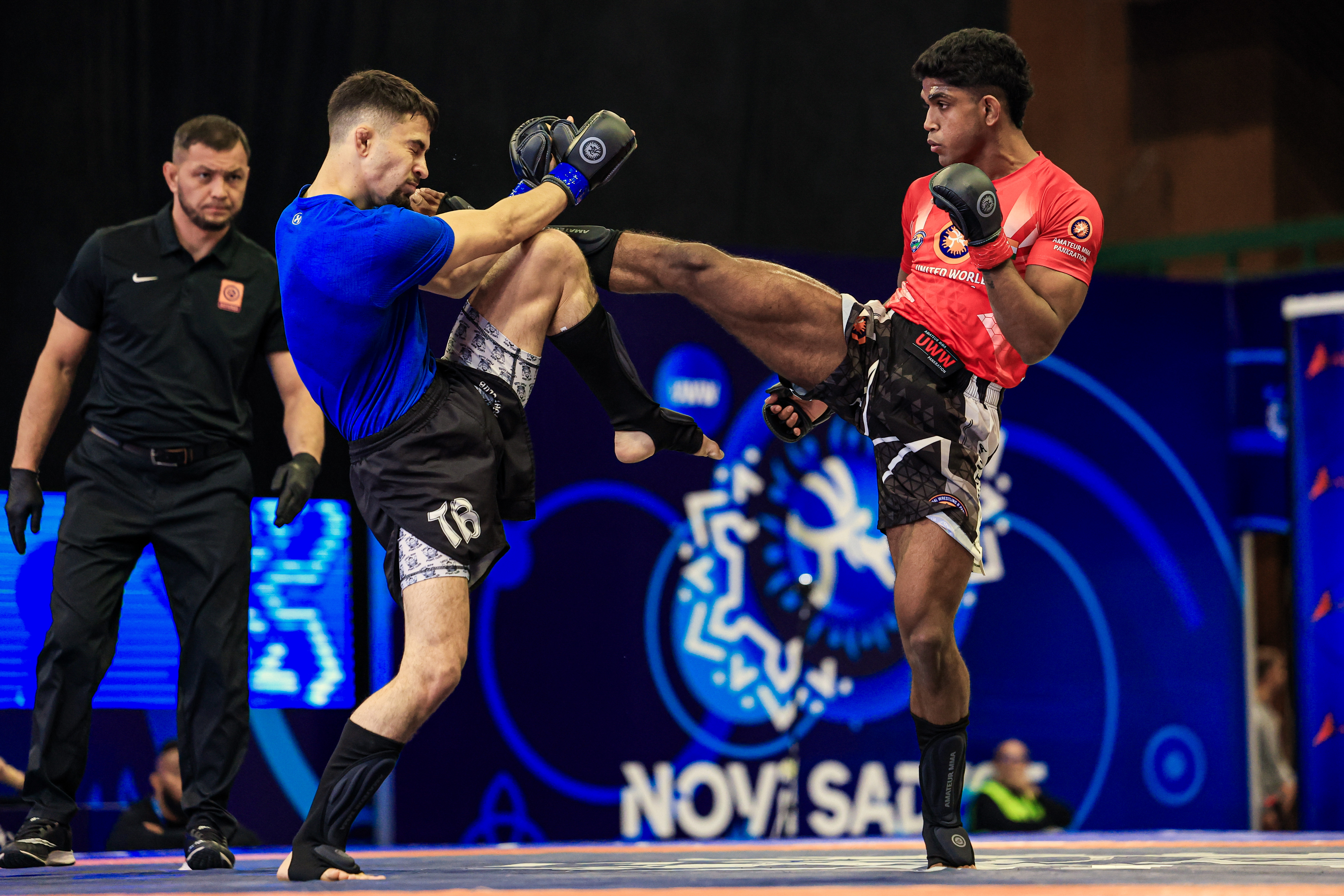 Scott HEATHCOTE (CAN), blue, and Aayush DIPU (IND) showing some early kicks during their match. (Photo: United World Wrestling / Amirreza Aliasgari)
Scott HEATHCOTE (CAN), blue, and Aayush DIPU (IND) showing some early kicks during their match. (Photo: United World Wrestling / Amirreza Aliasgari)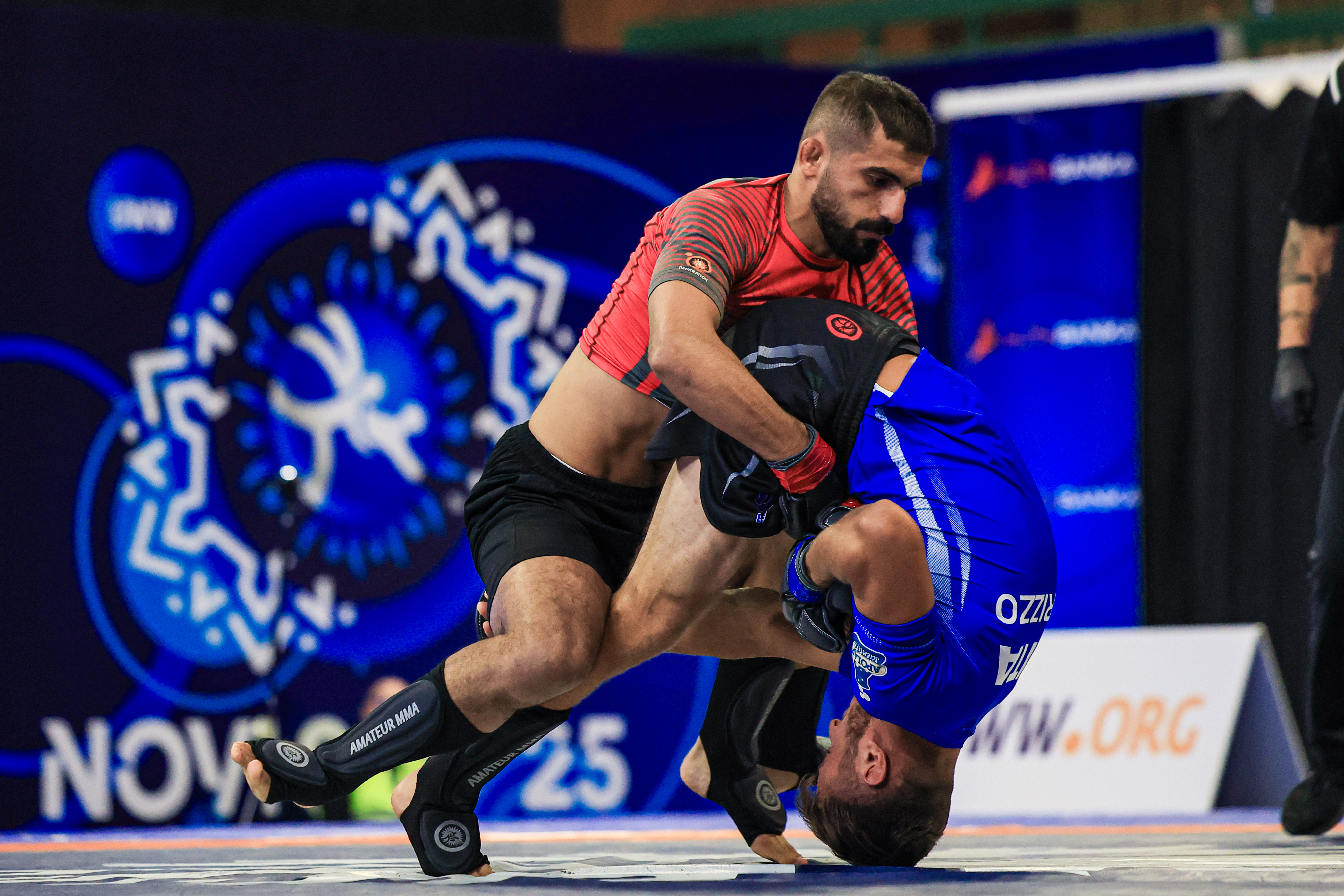 Front rolls for the win. (Photo: United World Wrestling / Amirreza Aliasgari)
Front rolls for the win. (Photo: United World Wrestling / Amirreza Aliasgari)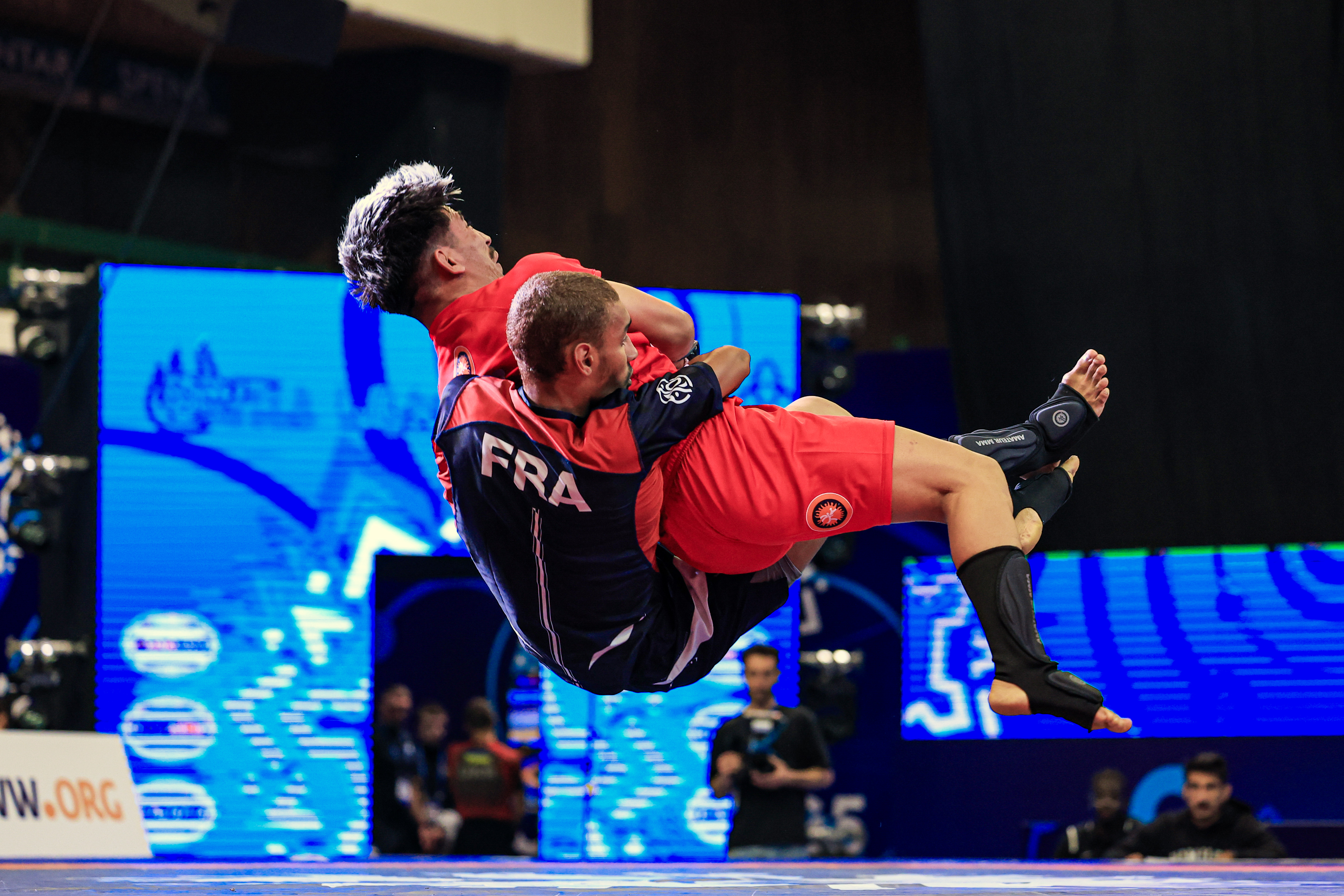 Up in the air. (Photo: United World Wrestling / Amirreza Aliasgari)
Up in the air. (Photo: United World Wrestling / Amirreza Aliasgari)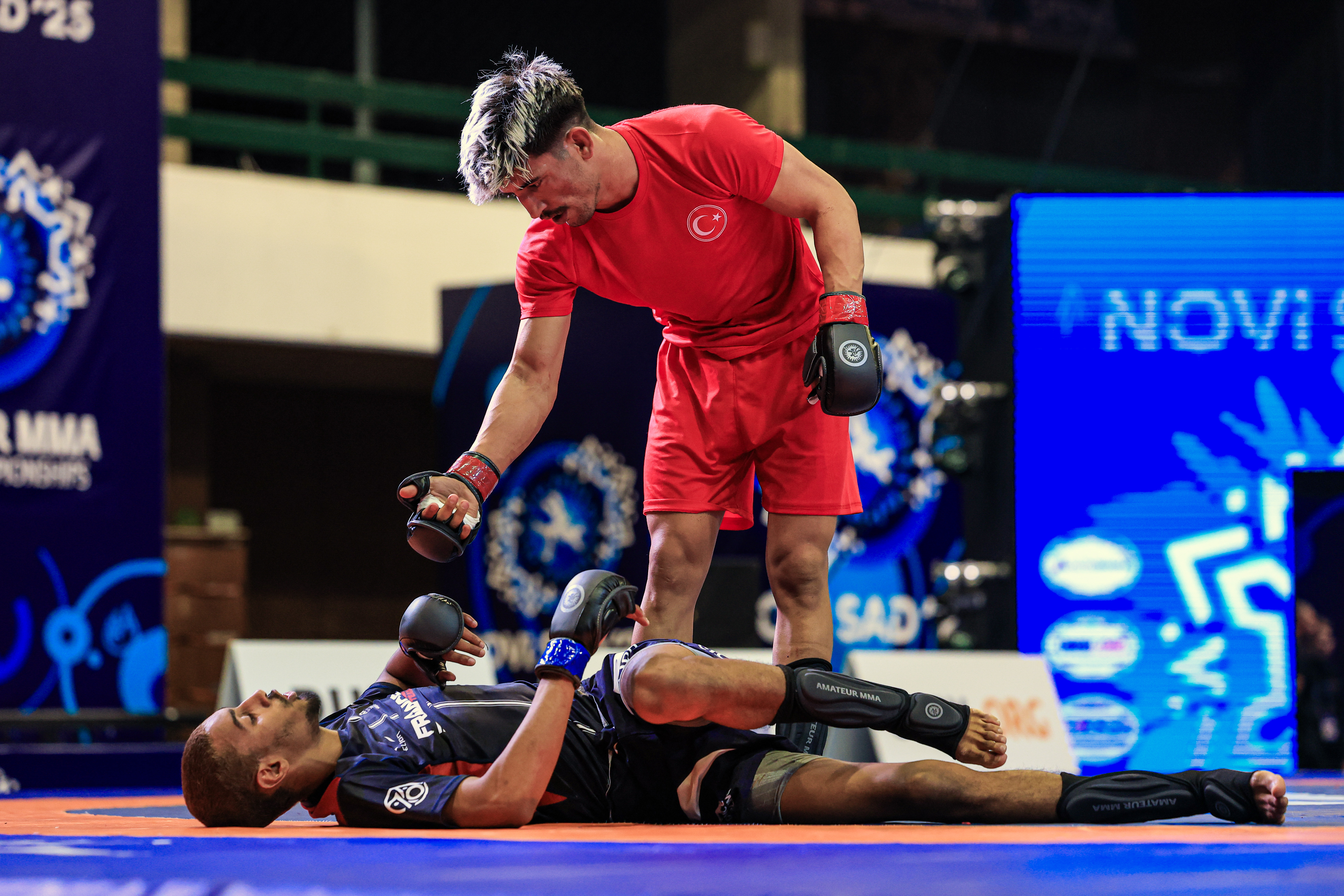 It's all about respect in the end. (Photo: United World Wrestling / Amirreza Aliasgari)
It's all about respect in the end. (Photo: United World Wrestling / Amirreza Aliasgari)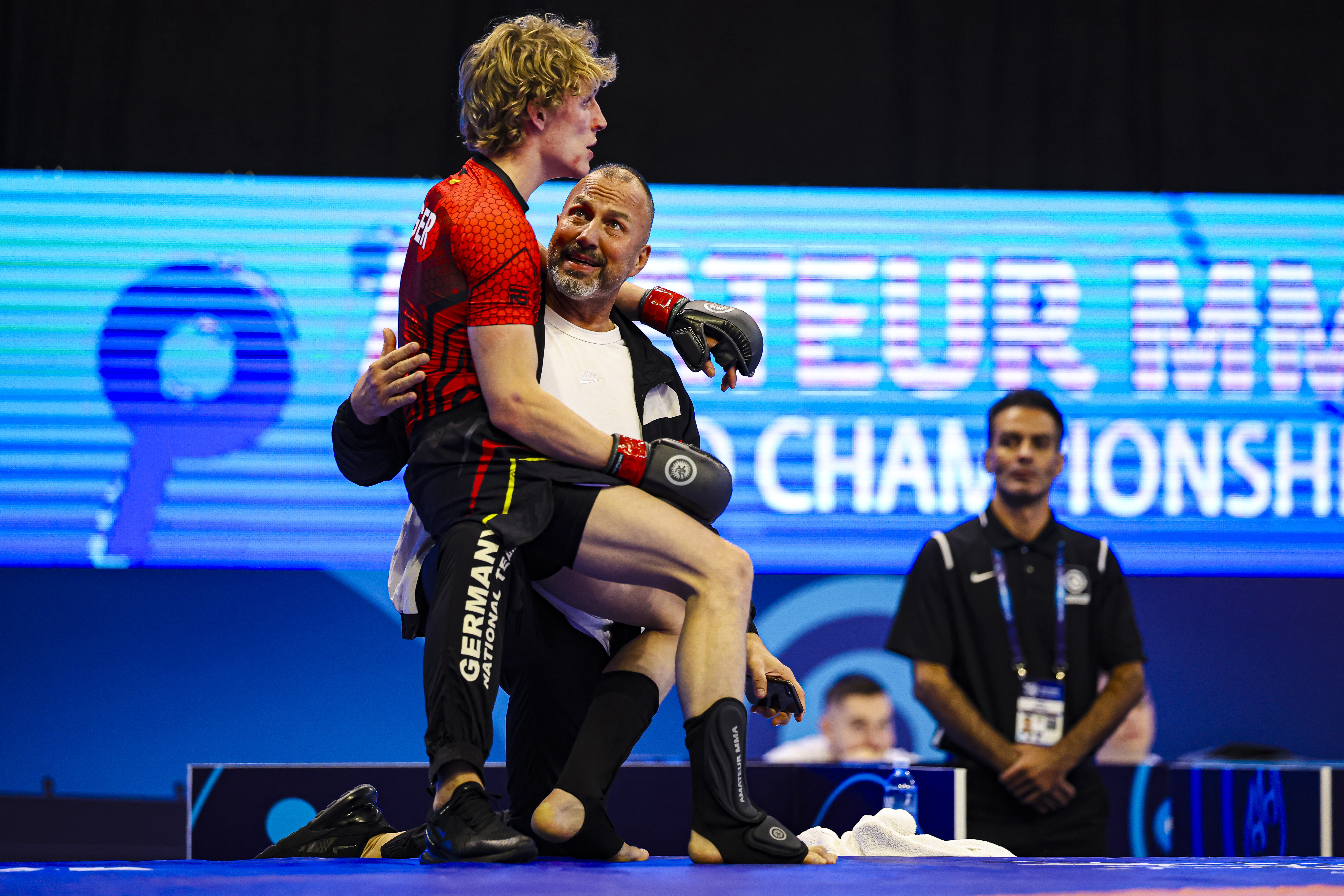 The coach improvised there. (Photo: United World Wrestling / Kadir Caliskan)
The coach improvised there. (Photo: United World Wrestling / Kadir Caliskan)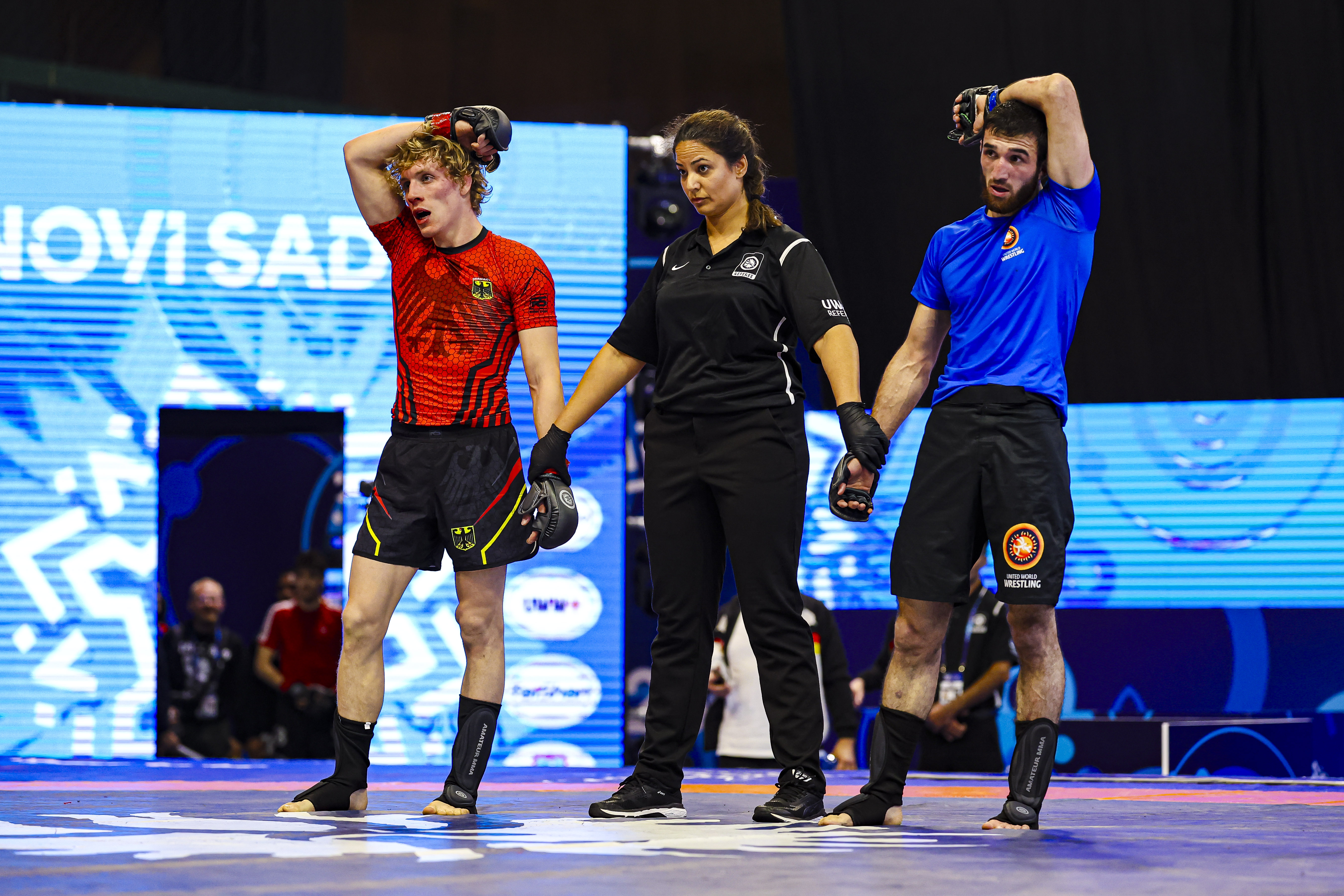 Win or lose, the reaction can't give it away. (Photo: United World Wrestling / Kadir Caliskan)
Win or lose, the reaction can't give it away. (Photo: United World Wrestling / Kadir Caliskan)
Share your thoughts.
Comments